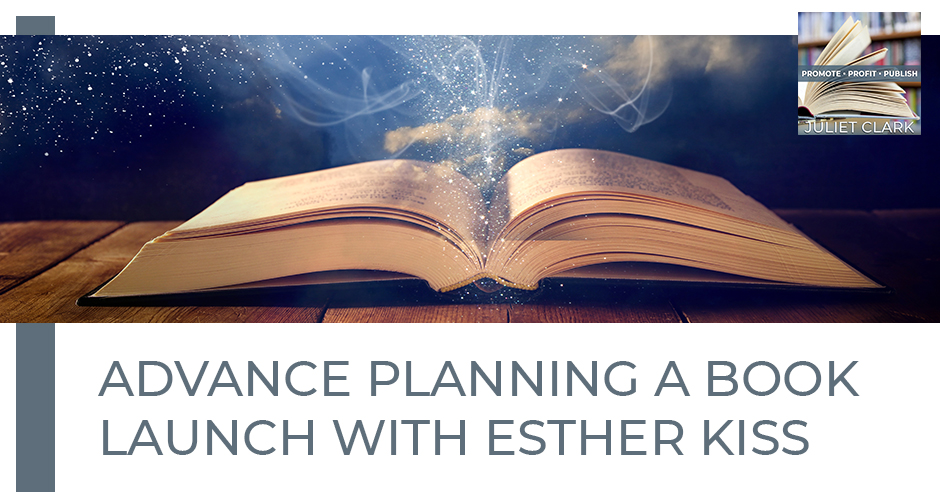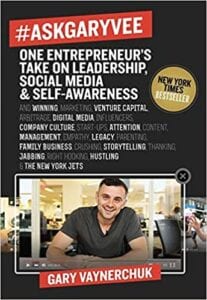
A book launch is a lot harder than it looks. In this episode, Esther Kiss, the Founder of Born to Influence, joins Juliet Clark as they talk about the kind of advanced planning you need with a book launch. They also dive into the power of publicity, when, why, and how you can do it yourself, and how you can coordinate it with advertising. Learn what to expect when launching your book and the planning you need to get going. Tune in and get your meaningful message out there.
—
Watch the episode here
Listen to the podcast here
Advance Planning A Book Launch With Esther Kiss
We have somebody who’s going to be helpful for you launching books. Before we get started, I want to remind you to go over and take our quiz www.PromoteProfitPublishQuiz.com. Find out if you’re ready to publish that book. There are a lot of pieces that need to be put in place for your platform. We’re going to talk about publicity now. Are you going to launch in a meaningful way that will get you book sales and publicity or is it going to be a dud? Find out if you’re ready because it is important. It’s not as easy as it looks. Also, don’t forget to go over to our YouTube channel, Superbrand Publishing and follow us over there. Every single one of these interviews, if you’re somebody who’s a little bit more visual than audio, these videos are over there. You can see these people in real life.
Our guest is Esther Kiss. Is that a great name or what? Why didn’t I get one of those great publicity names? She is the Founder of Born to Influence, a one-of-a-kind publicity and marketing agency, specializing in helping experts and personal brands get more publicity, leads, and sales. Her clients have been featured on TV, in newspapers, magazines, and in some of the top podcasts in the world, resulting in millions of dollars in additional sales. I’m going to have her, first of all, right out of the gate, tell you who some of her clients are. I think you’ll understand that she’s somebody you need to read to. Welcome, Esther. It’s great to have you.
Thank you so much, Juliet. I‘m happy to be here.
A little bit of name dropping here, let’s give them some reasons to read up because you’ve worked with some very big names, getting their books out there.

Book Launch: The messaging part is super important where you want to have one unique nugget.
I helped Gary Vaynerchuk with his last book and also Ryan Levesque for both of his books, Ask and Choose. A lot of up–and-coming thought leaders as well. People like Teresa Hill, Akshay Nanavati, who you may have not heard their names before, but now their books are selling internationally. They’re bestsellers. It gives me great pleasure to be able to help people who have a meaningful message.
No, those are some big names. I think I’ve read every one of Ryan Levesque’s books. I don’t want to say with Gary. I haven’t read all his books. I used to watch Gary when he was back and he was the wine guy.
That was a whole different era.
I know it was so long ago. I grew up in Wine Country. It was like, “What is this guy doing?“ I love what we’re going to talk about now. I don’t think people realize that a book launch is a heck of a lot harder than it looks. They go out and try to do their own publicity. A lot of times, it doesn’t work. What kind of advanced planning do you need with a book launch and you working on publicity?
The very first thing to have in mind is what your goals are with this book. For example, if you want to make one of the best sellers lists, whether it’s Amazon or you want to go all the way through The New York Times, you have to consider what kind of platform and following you have. Based on that, adjust the length of the campaign ahead of the book launch date so that all these pre-orders can come out and these interviews can be published before the book ships for the first time. Typically, we start at least 3 to 4 months before the book would come out. In some cases, it’s six months, seven months, even up to a year, depending on the person’s goals.
For you guys, you all know that we do Amazon bestseller launches. What you probably don’t know is we book them two weeks apart. We want to be able to concentrate on the current one. Amazon is the easiest out of all of those. For The New York times, you need to have an extraordinary platform. That is one where you need probably at least a year. Would you say that’s true?
Definitely. You already have to have a substantial following. I know that there are some outliers there. Somebody who was completely unknown and now they’re a New York Times bestseller. That’s not typically the case. What we are looking for is having enough traction on the social media platforms, through your email list, through your general following that people want to buy the book and have it shipped on the same week. That’s how The New York Times calculates it. In addition to that, they are very subjective there. We were talking about Gary a minute ago. For example, with him, when I helped him with the #AskGaryVee book, it became a New York Times bestseller. It was number six on the list. I can tell you because he talks about this publicly. We shipped 100,000 books in the first week. The number one on that list shipped 30,000.
Gary sold over three times as many books shipped and yet, somehow, it was only number six on the list. There are so many things that go into it that they don’t publicize. They don’t tell us. It’s always at the discretion of the committee that decides on these things. Part of it is relationships. Part of it is distribution. A big part of it as your platform and the consistency in which you‘re followed, showing up to your followers, whether it’s through TV, interviews, magazines, business publications, podcasts, whatever it may be to push people to buy the book or pre-order it ahead of time.
A book is great for building your credibility. Share on XI saw an interview because I follow who’s on the bestseller list, no matter who it is. I remember seeing an interview with Donald Trump Jr., that the week his was released, a conservative group bought a significant number. They had to take those numbers out because they came from one big sale. You do have to be careful with things like that. I think you have to have a couple of different platforms. I know for the USA Today and The Wall Street Journal, you can’t just do it all on Amazon. You have to have a couple of different platforms there.
The organizer buys a book for every single attendee. You have to have the details, that unique names and addresses, or at least the email addresses of each person who they gave the book to. Otherwise, it’s going to count as one sale instead of the hundreds of thousands of people who attended that event.
I know a lot of people have circumvented that by giving out cards. I think that’s a little bit risky with the Amazon cards, too. You don’t know. People might go buy a toaster oven instead of your book. You don’t credit the $20. You never can tell on that. There are lots of advanced planning. In terms of a platform, I don’t think people understand fully because we get a lot of people in with their first book who don’t have an email list. What do you need in terms of a platform? What are you looking for when you help people?
Ideally, they would have a strong online component to their business. For example, if their book leads to a coaching program or they’re selling an online course or an event or something, a mastermind, something that will help the author monetize this effort. If you’re only doing it because they want to have a book, which I think 80% of people, in general, have that dream that one day they want to write a book and how cool that would be. That in and of itself is not much. It’s great for building your credibility. It will help you open doors in terms of getting extra speaking opportunities or getting in the media. Perhaps it’s easier than traditional media because now you’re an author. As far as monetizing it, you have to have something beyond the book. That’s something that I’m always looking for.
Do they have well–converting offers, something that already is proven that we know that there is a demand for? If there is a demand, then we know that there is a community. Whether it’s through the form of an email list or a Facebook group, or they have their own personal Rolodex of people who are coming to them through referrals for working with that author in a coaching or consulting or whatever capacity, that’s important because those are your supporters. Those are the people who can put the word out there. They will buy a book for themselves, but they also buy five other copies for their clients or for friends and family to give it away. That way, they help you have that momentum initially to get as many books as possible. Looking at the community that you already have, that’s important.
When people put together their requests for publicity, and I think this is where a lot of people get tangled up, is they try to do it themselves. Can you talk a little bit about doing it yourself? When you should do it yourself? Why you should do it yourself? How you should do it yourself? I think a lot of people don’t understand that their book is not relevant. There’s a lot that goes into that.
It hurt my heart when you said the book is not relevant.
I’m so sorry. Let me rephrase that. We released a book in the summer of 2020, which in normal times, may have not been relevant in terms of needed now. We sit a little bit earlier with the riots that happened in May 2020 because it was a social justice book. That’s something easy for her to book herself because that’s what her book was about. I didn’t mean that, no, people’s books aren’t relevant.

Book Launch: It’s good to talk to an expert before your first interview just to understand what’s expected.
What I found that is a good point to that too is because a lot of people think that their book is more important to the media than it may appear on the surface. As an example, if it’s a memoir and you’re not a well-known person, that’s the hard push. If it’s a how-to book, if it’s a nonfiction book, if it’s something that is a fascinating story and gives actionable advice to people, that’s a different thing. I would look at where are you right now in terms of publicity. Have you done anything before? Were you featured on TV, on radio, in magazines, on podcasts? If you have that track record in terms of publicity, it may be a place for you to start there. Reach out to those media outlets where you’ve been before. Ask them for an interview as a follow–up interview or as a second interview, specifically about the book. Ask them for introductions. Who can they connect you with? Who also would be interesting? Whose audience would be interested in your message? That’s one.
The second thing is reaching out and cold pitching where you don’t have the relationships. Is that worth your time? Is that in your zone of genius? If you’re the kind of person who connects very easily, you build relationships quickly, it may be worth it. If you’re running a business, if you are already busy with clients and all the other things that go into marketing a book, it’s wise sometimes to hire somebody who can do the publicity for you. They already have those relationships with all types of media outlets. They can guide you through. They can help you with media training, especially if you haven’t done the media before. There is a way to presenting your message that needs to address certain talking points so that every new audience who comes in contact with you, they’re wanting to hear more.
You need to think through that. What are some of the things that they need to hear and believe in order to want to take the next step with you? At the same time, also, not make it so that you’re always having the same five talking points at every single interview. You change out the name of the show and it’s the same thing. That’s not going to help. For example, if you’re speaking on stages, those audiences will not physically follow you from one city to the next to hear you speak again. With media, they will want to listen to this podcast and the next podcast and watch the Zoom interview and watch that TV interview. They will read that article. They want to see everything if they like you.
The messaging part is super important where you want to have one unique nugget that is only for that media outlet and only for that show. Maybe you pull an example of something that just happened yesterday, or you saw something with a client happening last week, or a new revelation, or you’re phrasing the example in a different way. That’s an important part of it where a publicist can help you identify those talking points. The other thing too is, how do you make it relevant to the media? For example, the social justice topic with riots. That was great. We call it a hook. It was of course written because it was written already on that topic anyway. That’s something. If it’s not that obvious of a match for mainstream media, you always want to look at, “What are my core skillsets? What’s my experience? How can I relate it to something that’s trending, that’s a timely topic?”
I don’t think that a lot of people realize that if you’re on TV or even on a radio show, it’s not like a podcast where we can meander and go as long as we think that the audience will be engaged. There are hard stops with those two types of media. Does a publicity person train on that as well? The last thing you want to do is use your two minutes on TV and ramble.
Yes, a good one does. Not everybody does. Something that you should ask before you engage with a publicist is, “Do you guys provide media training?” That’s a big trap what you mentioned too with the podcast that you might have a half-hour or an hour. It’s very easy to ramble because you’re having fun and a good time chatting. Will that interview convert? There have to be certain things that you intentionally put there. I never want to hijack an interview. They ask you one question and you start talking about something completely different. You always want to answer the questions but make it where it ties into something that you know that audience needs to hear. It’s the same for TV and short-form formats. It’s truly like 2 to 3 minutes, including the questions. It’s very short.
If you have not done TV before, I would highly recommend doing a couple of mock interviews, either with a friend or the person who you hired to do the media pitching for you. They can help you not only with grabbing your soundbites and making sure that you can phrase it in a way that is easy to edit around. That’s something that producers will be always looking for if they’re considering calling you back for a second interview in the future. Also, some technical things like, “Are you looking at the camera? Are you looking at the person? What are you wearing? How does your hair look like?” They sound very shallow and superficial, but I’ve heard from producers that they will not call somebody in no matter how interesting the story because they look like a mess or they have two teeth. Things that are presentation-wise that are important, it’s good to talk to an expert before your first interview just to understand what’s expected
I’m sorry I have to laugh. I think of how many times I’ve seen Jack Dorsey on TV who looks like he’s homeless, and yet they interview him anyway.
That’s again a unique situation. Being the CEO, it‘s like running the world. They have to talk to him.
The reason I asked that question is I’m going to give you guys a tip here. I attended a workshop in LA to learn a little bit about how to do the media. The producers gave a lot of feedback. Here’s the one thing they were never impressed with and weren’t shy about telling you. If you go in and say you have an Amazon bestseller, they don’t care. They were like, “That doesn’t make your book relevant.“ I think it’s going through things like that and hearing that from professionals that help you understand what your publicity person is doing for you because then, they don’t have to tell you.
The only thing too is that if you’re doing it in a timely manner where you’re lining up these interviews before the book comes out, if maybe you don’t have the following to make the USA Today list or The Wall Street Journal list or whatever national list, it’s okay because the book hasn’t come out yet. It’s not going to be looked down on because it’s only an Amazon bestseller. You can say that, “I’m the author of the soon-to-be-published book.” You say the title. You can link it to the Amazon Pre-Order page where people can see that it’s a real thing. They will not be expecting it to be a bestseller if it hasn’t been published yet. If you’re doing it in advance, then that helps with that aspect, too.
I know you guys wouldn’t even think about the benefits of having media with your book. One of our clients was on ABC, a morning show. She sold almost 500 books in a matter of minutes. Those interviews, knowing how to do them well, and getting yourself booked and invited back through a publicist can be meaningful, not only for your sale, but for your exposure as well.
It’s a huge credibility builder because once you have that TV clip, you can get the actual video clip and use it. We’ll talk about it later how to combine it with your advertising. Beyond that, also having those as–seen–on logos. Sometimes people don’t dismiss it, but it’s important. First impressions are important. If you can say that, “As seen on ABC, NBC, CBS,“ whatever other media assets that you’ve been on, Entrepreneur magazine, Forbes, whatever, it’s important. It makes a difference on a subconscious level. I know for a fact that some of my clients literally sold like $60,000, $70,000 worth of services just because the person saw them on a TV outlet. In their mind, it immediately makes them much more credible.
If there is a demand, you know that there is a community. Share on XFor those of you who don’t know, I was talking about Malin Svensson who we did an interview with a while back. She’s Jane Fonda’s personal trainer. That’s where she was using the book to guide people into the programs Esther was just talking about there. It can significantly sell other things while being on. People might want to skip the book and go right into the program. It can make a big difference. Let’s talk a little bit about publicity. How do you coordinate it with advertising? What kind of advertising do you feel super effective?
Facebook ads tend to work well for book sales for nonfiction books. Amazon ads for when you’re doing an Amazon bestseller campaign. By the way, I don’t do any advertising myself, but I do help people with a strategy. Once their interviews come out, then we look at, “What do you have already set up in terms of your funnels, email marketing, social media, Facebook ads, Google ads,“ whatever it may be. We take some of those things and put them there as a retargeting ad. If you’re very numbers-driven, very direct–response minded, then you might want to go super granular. For example, with Ryan Levesque, he would do a unique coupon code for every single podcast that he did. He knew that, “This particular podcast sold five books. This one sold 200.” He would know that.
Also, you are able to follow it back to, “How many of those people then bought the mastermind, or came to an event, or bought the online course?” You can see the monetary value. I don’t think that you necessarily have to do that granular of a tracking. You don’t know. That podcast may have been where they made the purchase, but maybe they listened to five other interviews before. There is no way to track it in that kind of depth. The other thing is it’s not like you can split test it and go and do the same show again. It gave him peace of mind and proof of concept. We know for a fact that even just within the first year, we added $1.8 million to his business and sales because of this podcast interview.
It’s good to know if you want to. The key thing is taking your TV clip or your Forbes article or whatever where you are featured and then put it as the content for the ad in your retargeting campaign. If people came to check out the book page and maybe they did not pre-order, or they went to your website to some other area, your blog or landing page or something, and they did not purchase, you start retargeting them. In the person’s mind, it’s as though, “I saw this guy on TV. I read this article in the Huffington Post.” You’re putting it in front of them because you know that they’ve been already to your site, but you’re not just putting an ad at, “Buy my book.“ There are that ad fatigue and blindness that people skip it. If there is valuable content and that’s where the messaging comes in, an interesting piece of an interview that helps people, they get sucked into your world and want to know more. It’s like falling in love with you, and then the purchase is easy.
When I see, “Buy my book,” I know you didn’t build a platform. You wouldn’t have to do that if you had done all this the right way. For retargeting, for those of you who don’t understand ads, you have a book ad and then the people who click but don’t purchase, you can turn around and retarget something else at them. That’s where she’s talking about using that clip where you’ve been on media or to redirect them in some other areas. The first one is awareness. The second is building on that trust and persona.
We’ve all experienced this before. If you go to Nordstrom and you check out some shoes, but you don’t buy them, and then suddenly you‘ll see those shoes everywhere, they’re putting it in front of you. Now, we have the opportunity to do that to ourselves also forever.

#AskGaryVee: One Entrepreneur’s Take on Leadership, Social Media, and Self-Awareness
I hate that because if I go to Nordstrom’s and I see a pair of Manolos and then I’m like, “I’m not going to buy them. I’m going to be good. I’m not going to spend that kind of money.“ They’re like haunting and chasing me around, “Buy me.” So far, it’s been good not to succumb. That’s what they’re doing with the ad. Be aware of that. If we want to know more, if we want to get involved in a campaign and find out how long, what’s the deal, where can we find you?
There’s a lot of free information on my website, BornToInfluence.com. If you feel ready or you want to have a chat and see if this is something that we can help people you with, just email me at Esther@BornToInfluence.com. That’s the easiest way to get in touch.
Thank you. This was so much great information. I don’t think people realize that you can’t finish the book, publish it, and then start publicity. It doesn’t work that way.
I think a lot of people think that, “If I have a couple of weeks before the book comes out, it’s enough.” That’s crunch time. That’s very late. That will be an ongoing continued campaign. It’s not directly for the launch. Most people I work with, they’re still writing the book when we started the publicity. They’ve decided on the title. Perhaps, they have the cover design, although that’s not even always necessary. They have the synopsis for the book. Those are the most important things because now we can pitch it. Maybe we decide on the URL where the pre-order will be, even if the page is not built yet, but at least we have the URL. By the time that interview comes out in 2, 3 months, it will be ready. You will have the page. At least now, we can start setting up those interviews and coordinate the times for recordings. That’s another thing, too, why it’s sometimes great to work with a publicist. They have relationships. They can negotiate sometimes at times for when those interviews come out. You don’t want to have them too early, but also not too late. It has to be spread out just right.
I have a self–publishing company. In most self–publishing companies, you literally hand them the manuscript, tell them the cover idea, and that’s all you get. We start 3 to 4 months out developing that cover blurb. Do we need a landing page? We work with all that upfront. Do we have endorsements? Do we have testimonials? You can put those into the description. That’s a good reason to start, in addition. Work with a company that’ll work with that, as well as gets you hooked up with a publicist at the appropriate time instead of when it’s too late. All great points, sister. Thank you.
Thank you.
Important links
- www.PromoteProfitPublishQuiz.com
- Superbrand Publishing – YouTube
- Born to Influence
- Ask
- Choose
- #AskGaryVee
- Malin Svensson – Past episode
- Esther@BornToInfluence.com
About Esther Kiss
 Esther Kiss is the founder of Born To Influence, a one-of-a-kind publicity & marketing agency specializing in helping experts and personal brands get more publicity, leads and sales. Her clients have been featured on TV, in newspapers, magazines and on some of the top podcasts in the world, resulting in millions of dollars in additional sales.
Esther Kiss is the founder of Born To Influence, a one-of-a-kind publicity & marketing agency specializing in helping experts and personal brands get more publicity, leads and sales. Her clients have been featured on TV, in newspapers, magazines and on some of the top podcasts in the world, resulting in millions of dollars in additional sales.
Love the show? Subscribe, rate, review, and share!









Leave A Comment